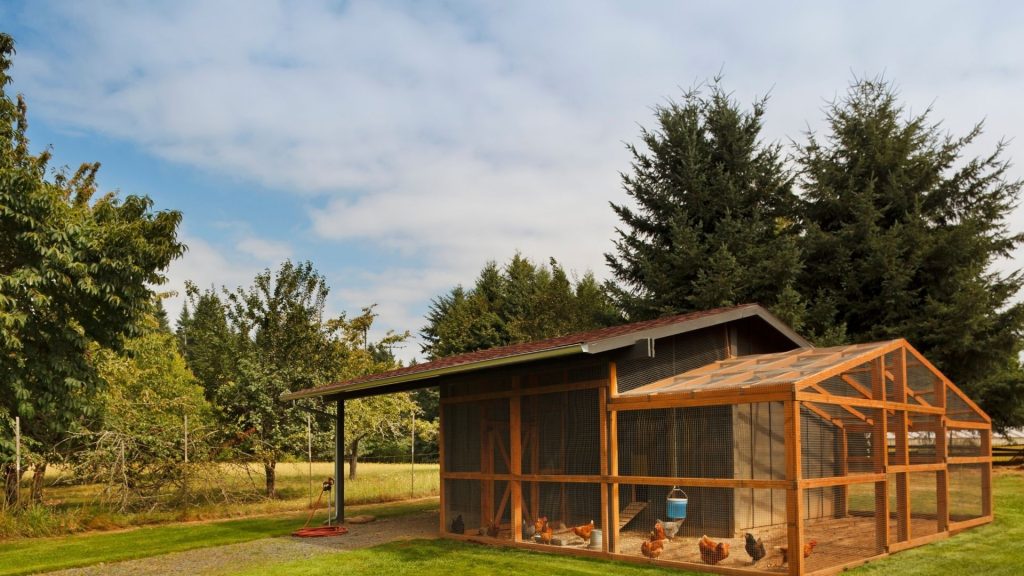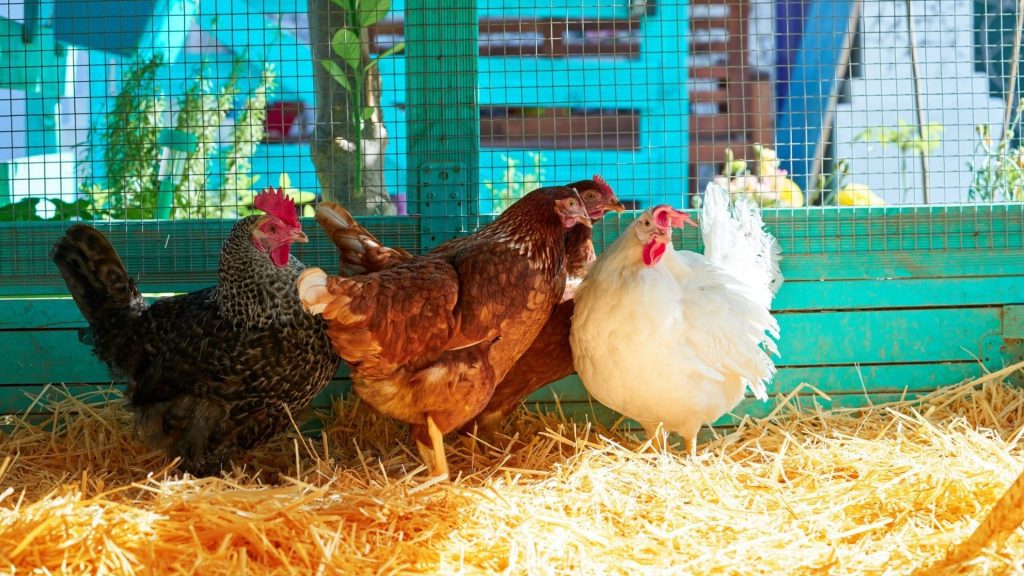Undoubtedly one of the exciting jobs is raising chicks. But before keeping backyard chickens, you need to know how to raise them and their related guides. Just like your pets growing, keeping chickens can be a rewarding experience for you.
But to get the best experience, you need to learn how to keep chicken coop clean and look after your chicken to prevent their sickness. Ensure you practice good hygiene conditions in your chicken coop and keep your chicken safe to get the best benefit from raising them.
Can You Keep Chickens In Your Backyard?
Most of the state’s laws allow you to keep chickens in your backyard. But in some cases, the law may limit the number of poultry you can keep. However, few states or councils may impose regulations or restrictions on the fact of how to raise chicken. Also, in some cases, for raising chickens, you may need a special permit from the local authority.
However, most local ordinances may not permit the roosters due to the crowing. Contact your local council to know the local rules, regulations, and laws.
Before Getting Chickens, Consider The Following Things
Many chicken owners often search for “what to know before getting chickens?” In the following section, we will discuss all the things the chicken owners should know.
- Check the ordinances of your local town first to ensure whether the law allows you to keep chickens in your backyard or neighborhood or not. Also, check whether there is any limit to keeping the number of chickens or not.
After spending enough money and time, if you find the law prohibits raising chicken in your backyard that would not be better. So check the ordinance first.
- Before setting up a chicken coop, you have to ensure that your backyard has enough space for the full-size chicken coop or hen house. Ensure the cage has enough space to hold the water and feeder containers, next box, and roosting area.
Also, a proper henhouse should have enough space so the owner can shovel manure comfortably and gather eggs. However, the smaller henhouse is usually quite simple but should have a minimum length and be sturdy enough.
- Every day your chicken requires water and food. Per 50-pound bag, the feed cost is about $20. However, the food price will significantly vary depending on the food quality and location. And how much food will require depends on the chicken numbers? The number of chickens in your coop is the most important determining factor of how long the feed bag will last.
- Your hens will perfectly lay eggs throughout the spring and summer and into the fall. But you have to ensure that your chickens get daylight of 12-14 hours, and only then will they continuously lay eggs. Expectantly you can collect eggs twice a day or daily.
- However, you can’t overlook the disadvantages keeping chickens. And, the disadvantage is you will not be able to go for a sudden tour with certainty. You require to manage a reliable chicken-sitter before going away for a vacation.
Beginners Guide To Keeping Backyard Chickens
This A-Z detailed guide is surely helpful for a beginner who wants to know how to raise chicken, what a chicken coop needs, and many more. Let’s discuss the entire process from the beginning:
1. Chicken Purchasing
The first step in raising chickens in your backyard is to purchase the chickens. Find a reliable commercial source and then buy the vaccinated birds from them. Usually, a good starter flock should contain 16-24 weeks of 4-5 birds. However, before starting to raise poultry, make sure you know chicken math.
Usually, if you raise these many chickens, ideally, they will supply enough eggs for your household. However, you can grow some extra chicks in your coop if you want. But don’t raise so many chicks together and ensure enough space for your chickens in cages.
2. Choosing the Chicken’s Correct Breed
Different chicken breeds are available in the market. But not every breed is perfect to raise. Thus you need to do a little research to learn about the chicken’s breed types and then select the correct species.
Even though chicken breeds are available in lots of categories, in general, we can categorize all the breeds in the following four types. Below we will discuss these 4 chicken breed types:
- Heritage Breeds: The natural breeding chicken is the Heritage chicken. These chickens live for a long time, but their growth rate is shallow.
- Egg Laying Breeds: Chicken of this type of breed, through their brief production lifetime, lays eggs in large quantities. However, as prolific egg producers, an excellent example is the Leghorns.
- Meat Breeds: By following the name, you already understand that this chicken breed will produce only meat. And the poultry owners raise this breed of chicken to meet the meat production need. The growth rate of this type of chicken is very quick.
- Dual Purpose Breeds: In terms of utility, the best chicken option for both worlds (eggs and meats) is this type of hen. This chicken breed produces enough amount of eggs and also ensures meat production in large amounts.
So, now by analyzing the pros, cons, and other details of the above types of chicken breed, buy and raise the best variety in your backyard.
3. Chicken Housing
The next step is to build or buy a house for your chickens. But before arranging the home for poultry, you should know how much space chickens need and then make a coop according to that estimate. Cover the nesting box or your chicken’s house using the right chicken coop bedding materials.
Make sure there is enough ventilation in your chicken house. Also, position your chicken house perfectly to prevent the winds and rain. Along with your chicken coop fencing, adding the additional vegetation will undoubtedly help to assist the wind protection.
4. Feed The Chickens
The most crucial task in raising chickens is appropriately feeding them. Ensure clean water and appropriate food to feed your chickens. Also, ensure you provide refreshed food and water to the chicken regularly.
You can choose the commercial layer pellets option to ensure the correct nutrients and balanced sources. However, as a supplement to your chicken’s diet, you can give the kitchen scraps to your chicken to eat.
The onions, chocolate, or garlic can create health problems in your chicken. Thus avoid giving all these foods to your chicken. Use a vermin-and-wild-bird-proof chicken feeder to prevent the eating and contamination of chicken feed. Also, use a vermin-and-waterproof sealed container for storing the excess feed. Avoid moldy feeding feed to your hens.
5. Chicken Health
Taking care of your chickens and ensuring the good health of your hens are the most important job in the entire process. Thus, before raising chickens, you need to know how to keep your chicken safe and healthy.
Due to improper management and lack of enough safety, your hens can suffer from the health problems just like all other animals. Regularly check your chicken’s health and ensure they are always active, alert, and eating food.
Also, ensure that your birds are taking breath noiselessly and they have clean nostrils and eyes. If you see any poultry become sick, immediately take help from the vet and diagnose your chicken’s health issues. For this, you should keep essential equipment for chickens.
Keeping Chickens And Staying Healthy
To get a positive experience from raising hens, you need to take care of your chicken and keep the coop clean. Doing all these will essentially reduce the risk of sickness in your family. However, you should follow the tips below for staying healthy while keeping chickens in your backyard.
- After touching the chicken every time, thoroughly wash your hands using soap and water. You should also wash your hands after handling the nesting material, collecting eggs, and coming into contact with your hens even a little.
- Ensure the hand washing practice among your children after touching the chickens. Also, when your young child is close to the chicken, you should supervise them closely. Again, ensure your child is not cuddling or kissing the chickens.
- Around your live poultry, avoid eating or drinking. Even if you eat or drink around your chickens, make sure your hand is washed and cleaned.
- While entering the chicken coop, wear a dedicated pair of boots or shoes to keep your feet clean and safe. Also, regularly disinfect and clean these shoes.
- During the chicken enclosure cleaning, wear gloves and carefully handle the nesting material.
Wrap up
So now you know the complete guide to keeping backyard chickens, including raising chickens and their safety terms. Irrespective of which type of chicken breed you raise in your chicken coop, the most important job is to ensure your hen’s good health.
Otherwise, the slight flu or virus is enough to destroy your chicken flock in a day. Make sure your chickens are incredibly resilient and healthy. And only then you will enjoy and get benefit from raising them.



